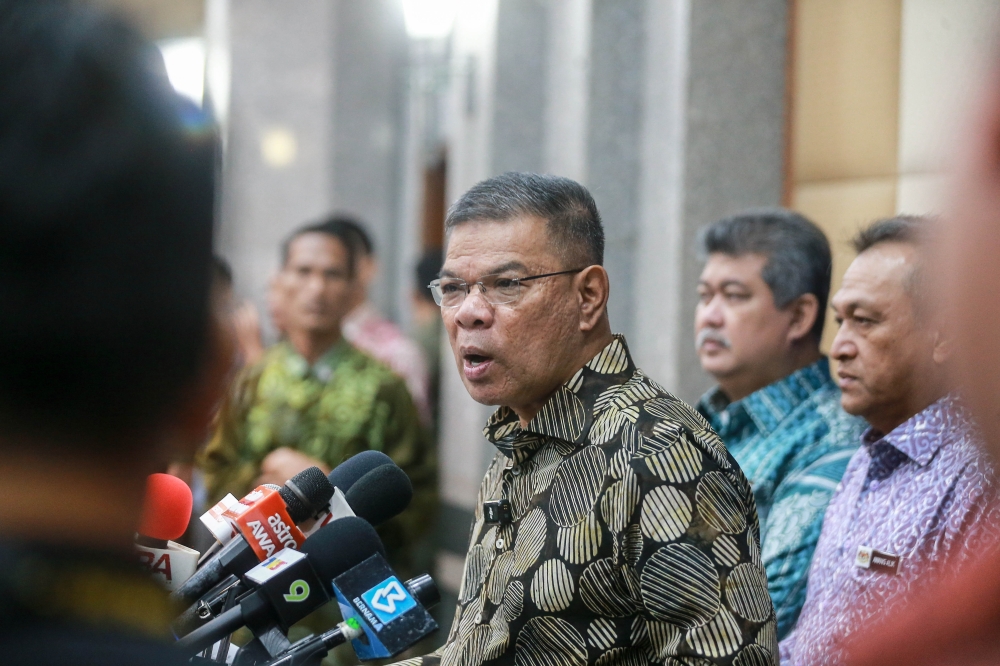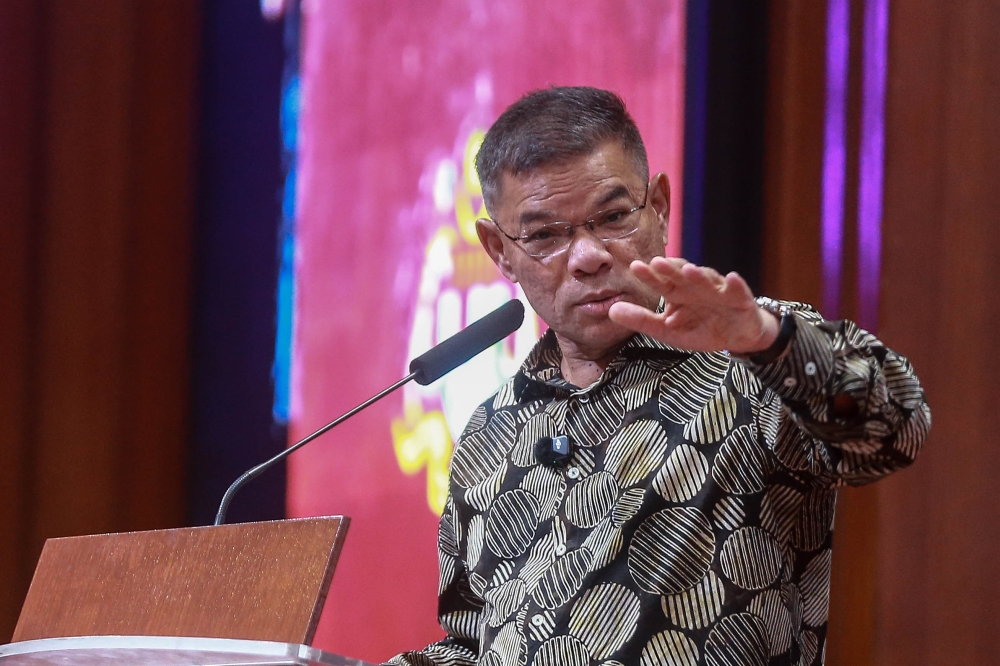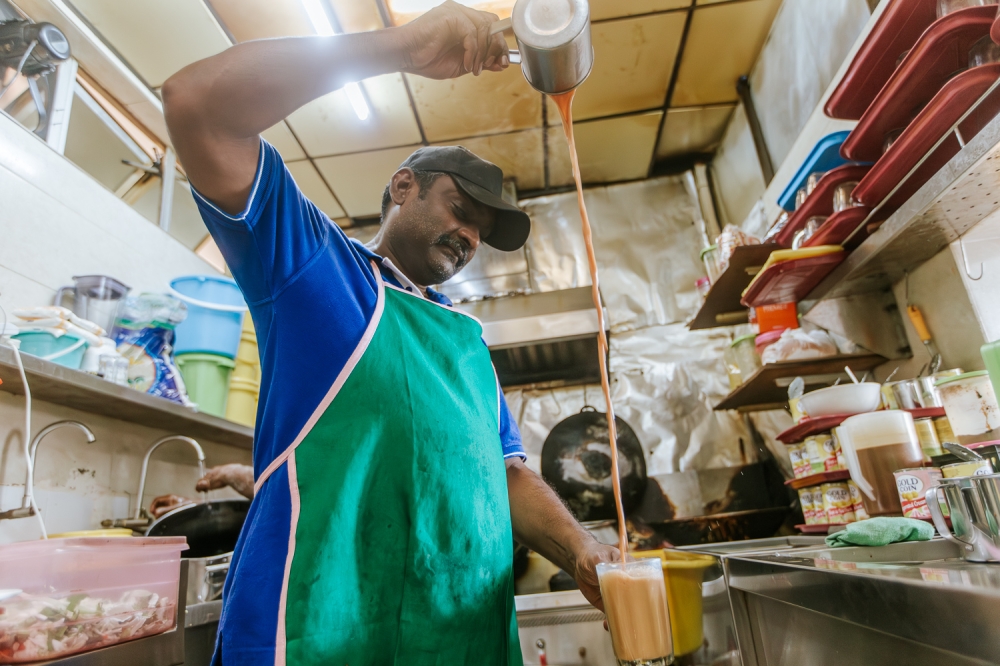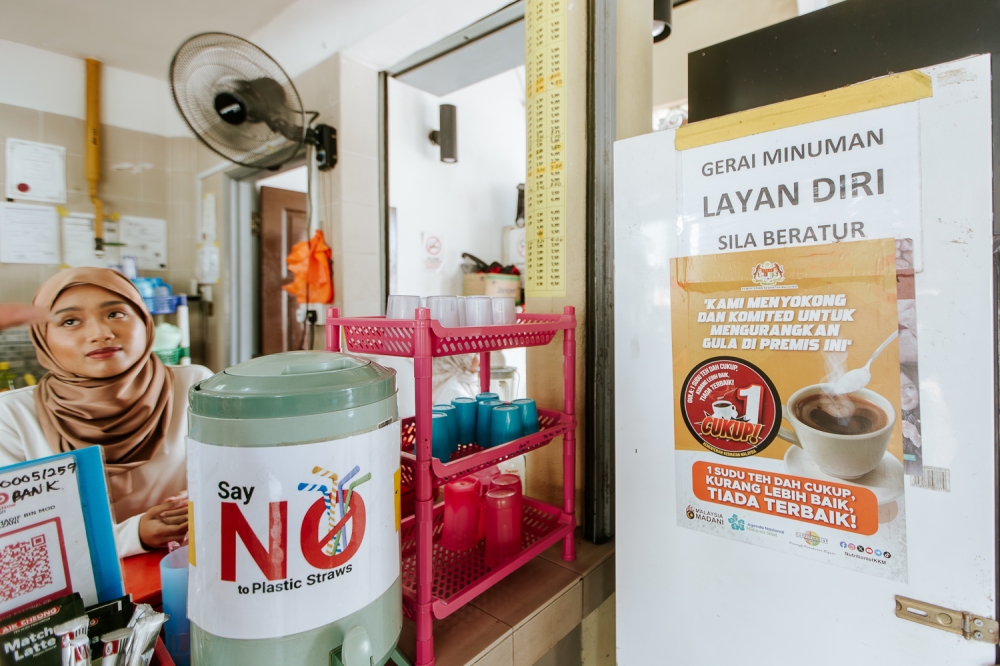KUALA LUMPUR, April 19 — Health professionals are warning of the rise in sugar-related diseases in Malaysia, amidst a growing obesity epidemic in the country.
Citing a recent study, Dr Kayatri Govindaraju, Head of Department of Pharmaceutical Life Sciences, Faculty of Pharmacy, Universiti Malaya, said the obesity rate in Malaysia is at 50.1 per cent.
“We’re witnessing a clear rise in obesity. A recent study by Chong et al., 2023, highlighted the prevalence of overweight among Malaysian adults stands at 50.1 per cent. We rank among the highest in Asean countries in this regard. As obesity is strongly linked to various metabolic diseases such as diabetes and hypertension, it’s no surprise that diabetes rates are also increasing,” she told Malay Mail.
“According to a national survey report in Malaysia in 2019, diabetes is expected to affect seven million Malaysian adults aged 18 and older by 2025, posing a significant public health risk with a diabetes prevalence of 31.3 per cent (Akhtar et Al.,2022),” she said.
The government’s Sugar Reduction Advocacy Plan, spearheaded by former health minister Dr Zaliha Mustafa, aims to raise awareness about the perils of excessive sugar consumption.
It was launched after it was determined that the cost of treating diabetes alone reached RM4.38 billion a year in 2017 compared to RM2.04 billion in 2011, and has directly affected the productivity level of the country’s workforce.
Dr Malathi Karupiah, consultant endocrinologist at Prince Court Medical Centre, said diabetes has become a pervasive health concern in Malaysia, affecting not only older adults but increasingly, the younger population.
With an estimated one in five adults afflicted, translating to approximately 3.9 million individuals aged 18 and above, the prevalence of diabetes continues to rise unchecked.
Shedding light on the nature of diabetes, she said it often went undetected until diagnosed through medical screenings. She emphasised the urgent need for widespread awareness campaigns, particularly targeting the excessive consumption of sugar-laden beverages commonly found in local stalls and night markets.
“Diabetes is a silent killer and you’ll only know you have it upon doing a medical check-up. In our stalls, our hot drinks taste good not only because they have sugar but the usage of condensed milk is high. Same goes for pasar malam drinks,” she told Malay Mail.
Public Health Physician Datuk Dr Zainal Ariffin Omar said the population’s sugar intake remained alarmingly high on average. This excess sugar consumption is not just about satisfying a sweet tooth, but it also a significant contributor to the rising rates of overweight and obesity across all age groups, he said.
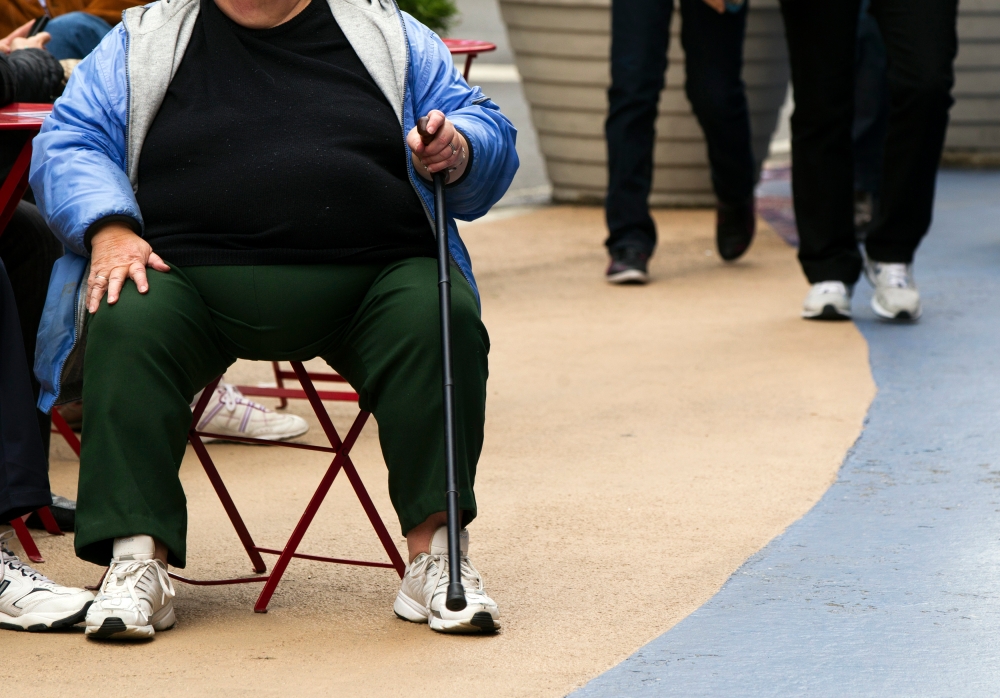
These conditions, in turn, amplify the risk of non-communicable diseases (NCDs), including diabetes.
“The link between sugar consumption and NCDs like diabetes is undeniable. High-calorie diets laden with sugar not only contribute to weight gain but also exacerbate health conditions that can lead to chronic diseases,” said Dr Zainal.
“By reducing our intake of sugar, both individuals and the nation as a whole can mitigate the prevalence and burden of NCDs. This reduction isn’t just a matter of personal health; it’s a public health imperative with far-reaching implications for the well-being of Malaysian society.”
Based on the National Health and Morbidity Survey (NHMS) 2019 the prevalence of diabetes by ethnicity for adults above the age of 18 goes like this. The Indians are most prone to diabetes at 31.4 per cent followed by the Malays (22.6 per cent) and Chinese (15.1 per cent).
Adopting international sugar reduction Initiatives
Prime Minister Datuk Seri Anwar Ibrahim last year instructed all ministries to reduce sugar consumption at gatherings, following news of Malaysia being top of the list for diabetes cases in Asia.
Dr Zainal said Malaysia could take cues others like the US, Europe and Singapore.
In the US, the National Salt and Sugar Reduction Initiative was initiated in February 2021. It provides sugar-reduction targets for manufacturers and food service providers to use as part of a public health partnership to improve the health of Americans. The initiative aims to gradually reduce 20 per cent of added sugar from common food purchases and 40 per cent from sugar-sweetened beverages over several years.
“This kind of programme will gradually eliminate the sugar content in the food products currently in the market. By eliminating a little sugar from your daily consumption due to the products on shelves being already less sweet or are made with reduced sugar content then inadvertently you are benefitting your overall health,” said Dr Zainal.
“In return the government can save on their medical costs due to obesity, overweight and NCD factors,” he added.
Neighbouring Singapore had in September last year launched the “Siu Dai by default” movement — referring to “less sweet” in coffee shop lingo there, aiming to encourage food and beverage operators to offer beverages with less sugar as a default.
This was another example to emulate, he said.
In Europe, member states led a voluntary Sugar and Calorie Reduction Network to promote healthier diets as well as reduce overweight and obesity levels across the World Health Organisation (WHO) European region was launched in 2022 in order to enhance understanding of the obstacles and opportunities in implementing sugar and calorie reduction programmes across different countries.
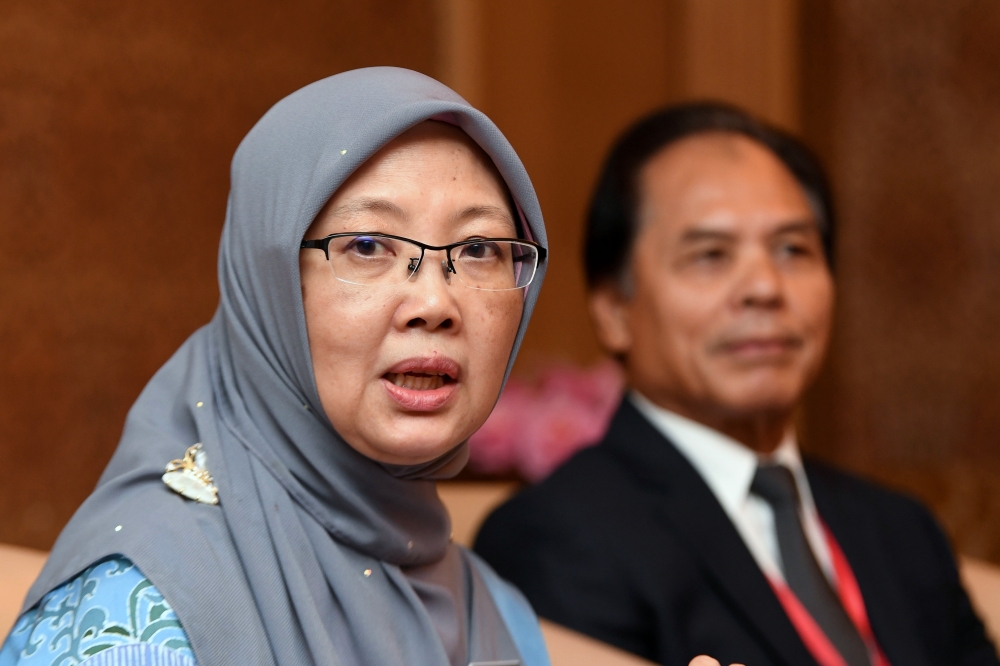
The aim was to work with other European nations to cultivate an environment within the region that facilitates and supports efforts to enhance the nutritional quality of food and beverages accessible to consumers and to coordinate national responses to industry practices while promoting proactive reformulation of products by industries in a positive and timely manner.
Dr Malathi proposed a comprehensive approach involving various stakeholders. She advocates for corporate support to encourage healthy behaviours, such as setting daily step count targets and offering incentives for achieving these goals.
Furthermore, she underscored the importance of early intervention through free medical screenings, beginning as early as 12 years old, to detect and address health issues promptly.
“We need proactive measures to instil healthy habits from a young age. Initiatives like setting daily step count targets and offering incentives for achieving them can encourage healthier behaviours. Additionally, providing free medical screenings, starting from as young as 12 years old, is crucial for early detection and intervention,” she said.
Dr Kayatri on the other hand said multifaceted strategies like public awareness campaigns were crucial in empowering the consumer with the knowledge. She suggested a sugar tax to help reduce the urge to want your food or drinks sweeter and vice versa subsidies for healthier food like fruits and vegetables.
“We need to empower individuals with knowledge to make informed dietary choices,” said Dr Kayatri.
“Implementing a sugar tax, similar to the successful model in the UK, can effectively discourage the consumption of sugary beverages and foods, thus curbing diabetes risk factors. Apart from that, providing subsidies for healthier foods like fruits, vegetables, and whole grains can make them more accessible and affordable to the public, promoting healthier dietary habits.”
The soft drinks industry levy (SDIL), or “sugar tax”, is a levy applied to UK-produced or imported soft drinks containing added sugar. It came into force from April 2018.
The SDIL was introduced as part of an anti-obesity strategy in 2016, aligned with the Childhood Obesity Strategy and supported by public health experts and campaigners. It aimed to tackle obesity while also considering potential economic benefits, such as reducing healthcare costs and improving labour market participation.
The primary objective of the SDIL was to incentivise soft drink reformulation towards lower-sugar recipes. This was achieved through a two-year grace period for manufacturers to reformulate their products before the levy’s implementation, a tiered structure targeting high-sugar brands, and a focus on soft drinks where reformulation is relatively straightforward due to the availability of zero-calorie sweeteners.
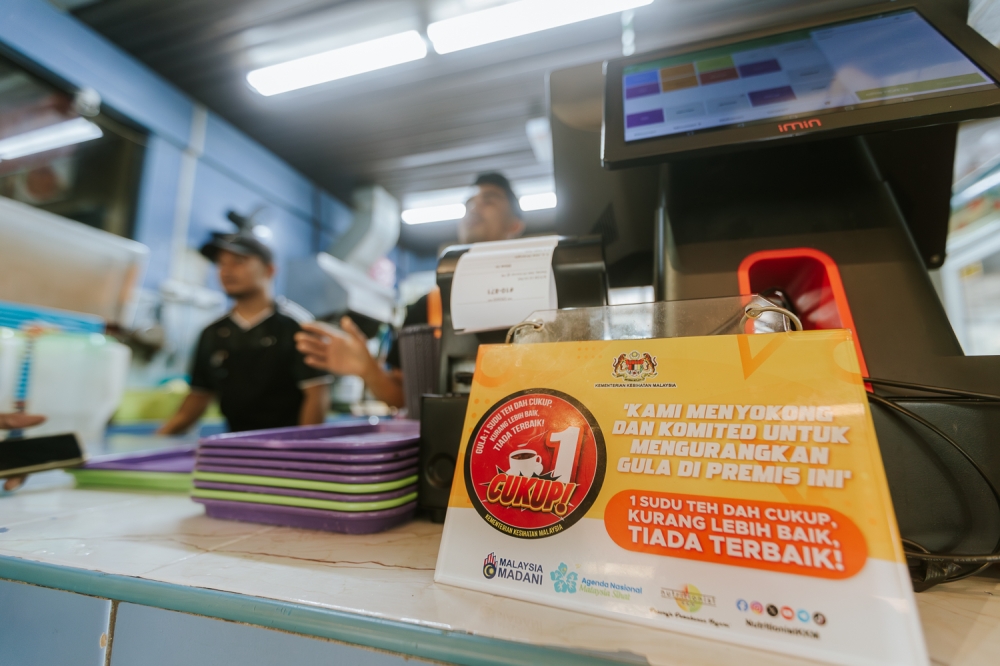
Additionally, the levy aimed to influence consumer behaviour by encouraging the choice of lower-sugar options over high-sugar ones, thereby promoting healthier dietary habits among the public.
“On the other hand, we could invest more in infrastructures such as public parks, bicycle lanes and walking paths to create an environment that supports and encourages physical activity,” she added.
Collective responsibility
A collaborative effort between healthcare professionals, policymakers, and the food industry is essential in curbing the rise of sugar-related diseases.
Dr Malathi said one impactful initiative is the implementation of a calorie count initiative in eateries across the nation.
“By mandating the inclusion of calorie information on menus consumers are empowered to make informed dietary choices. This transparency not only aligns with the growing trend toward healthier living in Malaysia but also serves as a practical tool for individuals striving to manage their calorie intake more effectively.
“The significance of calorie labelling cannot be overstated. For many Malaysians, the simple act of knowing the calorie content of their food and beverages can be a game-changer. It provides a tangible means of understanding the nutritional value of their choices and encourages mindfulness when selecting meals. This newfound awareness has the potential to significantly reduce the consumption of high-calorie items, thereby mitigating the risk factors associated with diabetes and other related health conditions,” said Dr Malathi.
Dr Kayatri stresses the collaborative role of healthcare professionals in educating communities on the critical need to reduce sugar consumption.
“Healthcare professionals play a vital role in engaging with communities to raise awareness about the importance of reducing sugar intake. Policymakers can support by implementing community-based initiatives and have the opportunity to bolster such efforts through funding and by enacting regulations like sugar taxes, mandatory reduction targets for food manufacturers, and stricter labelling requirements.
“Additionally, collaboration between the food industry and healthcare professionals is key for investments in research and development which can lead to the creation of healthier, lower-sugar alternatives, driving meaningful change in dietary habits,” she added.
According to a survey by Landgeist, Bahrain (44.3kg) has the highest per capita sugar consumption in Asia and one of the highest in the world. Lebanon (43.4kg) and Malaysia (41.6kg) are the only other Asian countries where the sugar consumption is over 40 kilograms per capita.
The lowest numbers can be found in Myanmar (2.9kg), North Korea (4.5kg) and Bangladesh (6.3kg). While in Europe, Belgium emerged as the biggest consumer of sugar-sweetened soft drinks. Poland (45.7kg), Malta (43.8kg) and Denmark (40.4kg) are the only other European countries where the sugar consumption is over 40kg per capita.
The lowest numbers can be found in Luxembourg (10.8kg), Cyprus (17.6kg), Bosnia and Herzegovina (18.3kg), Albania (18.6kg), Slovenia (19.4kg) and Latvia (19.9kg) all have a per capita sugar consumption below 20kg.
Read here for Malay Mail's coverage of the pilot "Kurang Manis" campaign being run in Putrajaya food courts, and the public's reception towards it.

